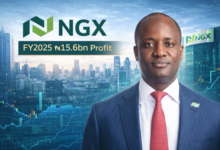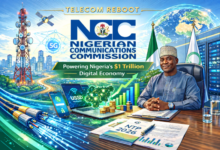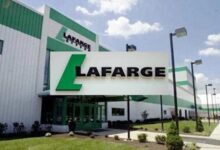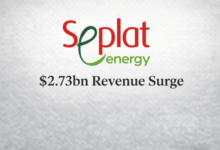Nissan AGM turns spotlight on unresolved alliance strains
 Nissan shareholders laid bare the unresolved crisis between their company and its French partner Renault on Tuesday, forcing the head of the Japanese carmaker to admit the need for critical talks on the capital structure and future of the alliance. The remarks by Nissan chief executive Hiroto Saikawa punctuated a full-throated annual general shareholders’ meeting that was the first the company has held since the arrest in November of its former chairman, Carlos Ghosn, on financial misconduct charges.
Nissan shareholders laid bare the unresolved crisis between their company and its French partner Renault on Tuesday, forcing the head of the Japanese carmaker to admit the need for critical talks on the capital structure and future of the alliance. The remarks by Nissan chief executive Hiroto Saikawa punctuated a full-throated annual general shareholders’ meeting that was the first the company has held since the arrest in November of its former chairman, Carlos Ghosn, on financial misconduct charges.
The annual meeting took place with relations between the two companies at their worst in the 20-year history of the alliance, despite efforts to appear united. High in the minds of many Nissan investors was the last-minute crisis created two weeks ago when Jean-Dominique Senard, Renault’s chairman, threatened that the French company would abstain in the pivotal vote that would create a new governance structure converting Nissan to a three-committee board system. The stand-off was only broken when Nissan added a Renault executive to the proposed committees — a concession that one shareholder warned was a sign of the inherent weakness of Nissan’s position.
Many suspect that the arrest of Mr Ghosn, who has denied any wrongdoing, was entwined with the tensions that arose when Renault and the French government pushed Nissan into unwelcome merger talks. The accusations against Mr Ghosn, along with what some shareholders see as his deeply malign effect on the company’s corporate governance, loomed heavily over the annual meeting. Mr Saikawa, who presided over a severe decline in full-year profits this year but comfortably survived Tuesday’s vote on his reappointment, began proceedings with an apology accompanied by a seven-second bow to his audience. He also admitted that Nissan, which has undergone a series of painful spasms since Mr Ghosn’s departure, had “not been ready” for the scandal that unfolded.
In one of several unusually blunt responses to shareholders’ questions, Mr Saikawa said the existing structure of the alliance would need to be reconsidered if its fundamental imbalance became a “factor of instability”. Renault holds a 43 per cent voting stake in Nissan, but Nissan holds only a 15 per cent non-voting stake in Renault. Mr Saikawa said that while the alliance was a win-win relationship, “if necessary, we will put our capital structure on the table. If it becomes win-lose, the relationship will break up very quickly”. But he warned that pressure for a full merger between Nissan and Renault was not the answer: “It is not a simple conclusion that more integration is the best option.” He made his comments just metres away from Mr Senard, who in April joined Nissan’s board as a director and whose dual role was vehemently criticised by shareholders as a potential conflict of interest. Despite predictions that Mr Saikawa would receive the heaviest condemnation from Nissan shareholders, some of the strongest criticism was aimed at Mr Senard. He was directly asked whether he was capable of behaving like a Nissan director while simultaneously serving as the Renault chairman. Mr Senard, who several times begged Nissan’s shareholders to believe his sincerity, acknowledged that his recent efforts had focused on smoothing an alliance relationship that “was in a much worse state than I thought”.
Source: Financial Times
Samson Oyedeyi












